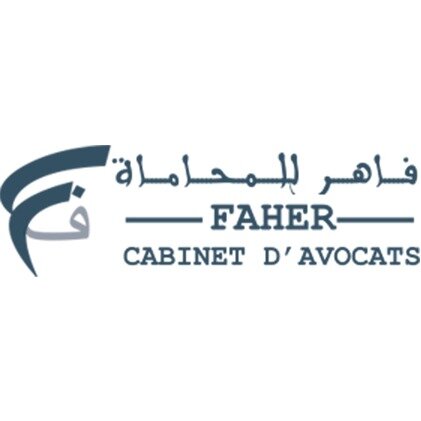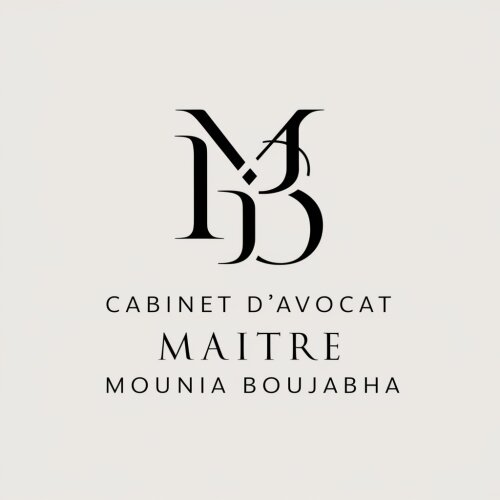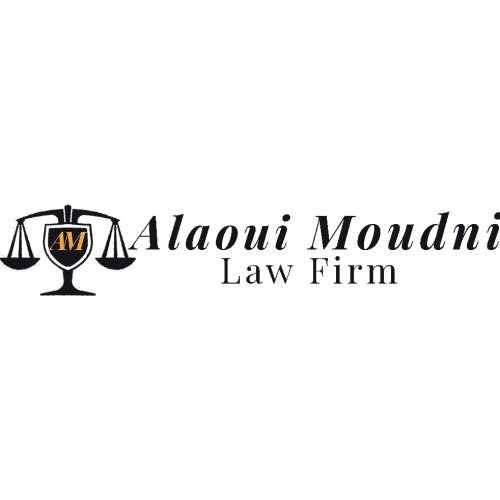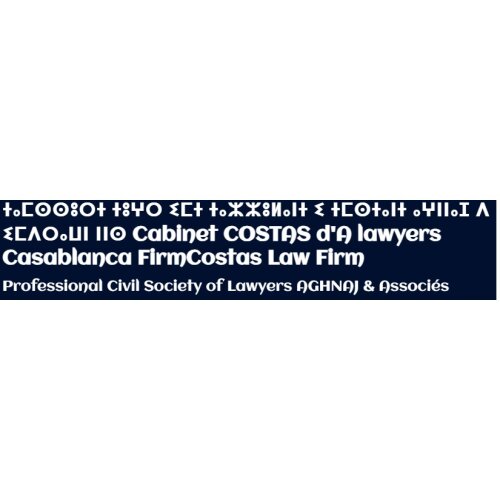Best Constitutional Law Lawyers in Casablanca
Share your needs with us, get contacted by law firms.
Free. Takes 2 min.
List of the best lawyers in Casablanca, Morocco
About Constitutional Law in Casablanca, Morocco
Constitutional Law in Casablanca, as well as across Morocco, is governed by the national framework established by the Moroccan Constitution, which was most recently revised and ratified by a referendum in 2011. This legal area encompasses fundamental issues regarding the governance of the state, including the powers and duties of government entities and the rights and freedoms of citizens. Casablanca, being the largest city and a major financial hub of Morocco, often encounters constitutional matters tied to both individual rights and administrative actions, reflecting the city's diverse and dynamic environment.
Why You May Need a Lawyer
There are several common situations in which individuals or entities might seek legal assistance in the field of Constitutional Law in Casablanca:
- Disputes Over Constitutional Rights: Cases involving the violation or interpretation of constitutional rights, such as freedom of speech, freedom of assembly, and privacy rights.
- Governmental Actions: Challenges to the legality of actions or decisions made by local or national government bodies.
- Electoral and Political Issues: Matters concerning elections, political parties, or the right to vote may require constitutional expertise.
- Administrative Lawsuits: Cases involving the misapplication of public laws or administrative procedures by governmental bodies.
- Human Rights Violations: Legal challenges related to allegations of human rights abuses, which may intersect with constitutional provisions.
Local Laws Overview
Constitutional Law in Casablanca is grounded in Morocco's national constitution, which sets the structure and principles of government while guaranteeing rights to its citizens. Key aspects include:
- Separation of Powers: The constitution delineates a balance of power among the legislative, executive, and judiciary branches.
- Citizens’ Rights and Freedoms: The constitution enshrines various civil liberties, including equality before the law, freedom of expression, and religious freedom.
- Judicial Review: Courts have the power to interpret the constitution and assess the constitutionality of laws and regulations.
- Decentralization: Recent reforms emphasize the decentralization of administrative powers to regional governments, including Casablanca's local government.
Frequently Asked Questions
What is the role of the Constitutional Court in Morocco?
The Constitutional Court in Morocco is responsible for ensuring that laws and regulations comply with the constitution. It has the authority to interpret the constitution and resolve disputes related to its meaning and application.
How can an ordinary citizen challenge a law or government action on constitutional grounds?
Citizens can challenge laws or actions through legal representation that files petitions or lawsuits, often starting in the administrative courts, which can escalate to higher courts if necessary.
Are there any recent constitutional reforms that affect Casablanca's local governance?
Yes, constitutional reforms in 2011 enhanced local governance by promoting decentralization and granting more power to regional authorities, allowing Casablanca to manage many of its administrative functions autonomously.
What are some constitutional rights that are commonly protected in Casablanca?
Commonly protected rights include the right to free expression, property rights, privacy rights, and the right to a fair trial, among others laid out in the Moroccan Constitution.
Can foreign nationals seek constitutional protections in Casablanca?
While the Moroccan Constitution primarily protects its citizens, foreign nationals can still seek recourse under international treaties to which Morocco is a signatory, as well as applicable national law provisions.
How does the constitution affect businesses operating in Casablanca?
Businesses must align with constitutional dictates regarding fair competition, property rights, and adherence to lawful administrative procedures, especially in interactions with governmental bodies.
What language is the Morocco Constitution written in?
The Moroccan Constitution is written in Arabic, the official language of the country, and is also available in the Amazigh language as a recognition of cultural diversity.
How do constitutional amendments occur in Morocco?
Amendments to the Moroccan Constitution require a complex procedure involving proposal and ratification either by a two-thirds majority in both legislative houses or a national referendum.
Are there public legal services available for constitutional law issues in Casablanca?
Yes, public defenders and legal aid societies can provide assistance for individuals who cannot afford private representation, although availability may vary based on the specific issue.
What is the importance of the preamble in the Moroccan Constitution?
The constitutional preamble outlines the fundamental principles and values of Morocco, serving as a guiding statement for interpreting the rest of the document.
Additional Resources
For further assistance or information on Constitutional Law in Casablanca, consider the following resources:
- Ministry of Justice of Morocco: Offers information on legal rights and court procedures.
- National Human Rights Council: Provides advice and advocacy in cases involving human rights issues.
- Local Bar Associations: Can help locate legal professionals specialized in constitutional law.
- Universities with Law Faculties: Often provide access to legal clinics and academic resources.
Next Steps
If you believe you need legal assistance in matters of Constitutional Law in Casablanca, consider the following steps:
- Identify Your Legal Need: Clearly outline the issue you're facing and determine which aspects of constitutional law it pertains to.
- Consult a Legal Expert: Reach out to a lawyer specializing in constitutional law to discuss your case and legal options.
- Gather Relevant Documentation: Collect any documents, evidence, or correspondence related to the matter at hand.
- Consider Legal Aid or Representation: Evaluate whether you can afford private representation or if legal aid options are available to you.
- Understand the Process: Discuss the steps involved with your lawyer, including potential timelines and outcomes.
Lawzana helps you find the best lawyers and law firms in Casablanca through a curated and pre-screened list of qualified legal professionals. Our platform offers rankings and detailed profiles of attorneys and law firms, allowing you to compare based on practice areas, including Constitutional Law, experience, and client feedback.
Each profile includes a description of the firm's areas of practice, client reviews, team members and partners, year of establishment, spoken languages, office locations, contact information, social media presence, and any published articles or resources. Most firms on our platform speak English and are experienced in both local and international legal matters.
Get a quote from top-rated law firms in Casablanca, Morocco — quickly, securely, and without unnecessary hassle.
Disclaimer:
The information provided on this page is for general informational purposes only and does not constitute legal advice. While we strive to ensure the accuracy and relevance of the content, legal information may change over time, and interpretations of the law can vary. You should always consult with a qualified legal professional for advice specific to your situation.
We disclaim all liability for actions taken or not taken based on the content of this page. If you believe any information is incorrect or outdated, please contact us, and we will review and update it where appropriate.











